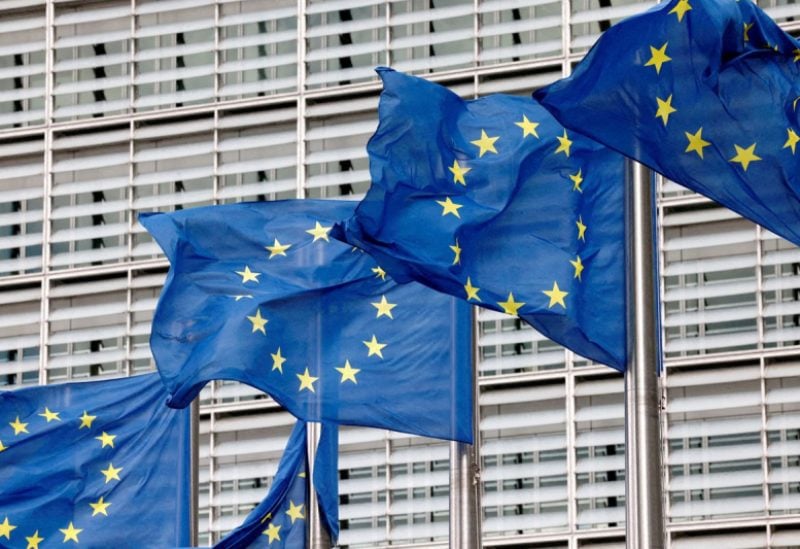
European Union flags flutter outside the EU Commission headquarters in Brussels, Belgium, September 28, 2022. REUTERS/Yves Herman/File Photo
After weeks of negotiations on the emergency measure that has divided opinion inside the union as it strives to contain the energy crisis, the energy ministers of the European Union finally agreed on a gas price ceiling on Monday.
The cap is the EU’s 27-country bloc’s most recent effort to reduce gas prices, which have increased energy costs and led to record-high inflation this year after Russia stopped delivering the majority of its gas to Europe.
The Dutch Title Transfer Facility (TTF) gas hub’s front-month contract, which serves as the European benchmark, has a price cap of 180 euros ($191.11) per megawatt hour. Ministers agreed that this price cap will be triggered if it crosses that threshold for three days.
The TTF price must also be 35 eur/MWh higher than a reference price based on existing liquefied natural gas (LNG) price assessments for three days.
“We have succeeded in finding an important agreement that will shield citizens from skyrocketing energy prices,” said Jozef Sikela, industry minister for the Czech Republic, which holds the rotating EU presidency.
The cap can be triggered starting from Feb. 15, 2023. The deal will be formally approved by countries in writing, after which it can enter into force.
Once triggered, trades would not be permitted on the front-month, three-month and front-year TTF contracts at a price more than 35 euros/MWh above the reference LNG price.
This effectively caps the price at which gas can be traded, while allowing the capped level to fluctuate alongside global LNG prices – a system designed to ensure EU countries can still bid at competitive prices for gas in from global markets.
Germany voted to support the deal, despite having raised concerns about the policy’s impact on Europe’s ability to attract gas supplies in price-competitive global markets, three EU officials said.
An EU official told Reuters Germany agreed to the price cap after countries agreed changes to another regulation on speeding up renewable energy permits, and stronger safeguards were added to the cap.
Those safeguards include that the cap will be suspended if the EU faces a gas supply shortage, or if the cap causes a drop in TTF trading, a jump in gas use or a significant increase in gas market participants’ margin calls.
Soaring power and gas prices have rocked energy companies across Europe, forcing utilities and traders to secure extra funds from governments and banks to cover margin call requirements.
Germany’s Uniper has booked billions of euros of losses on derivatives, exacerbating a crisis as it rushed to fill the gap left after Russia cut supplies.
Jacob Mandel, senior associate at Aurora Energy Research, said the TTF front-month contract has rarely closed above 180 eur/MWh, noting this has occurred on 64 days in its history. All of those were in 2022.